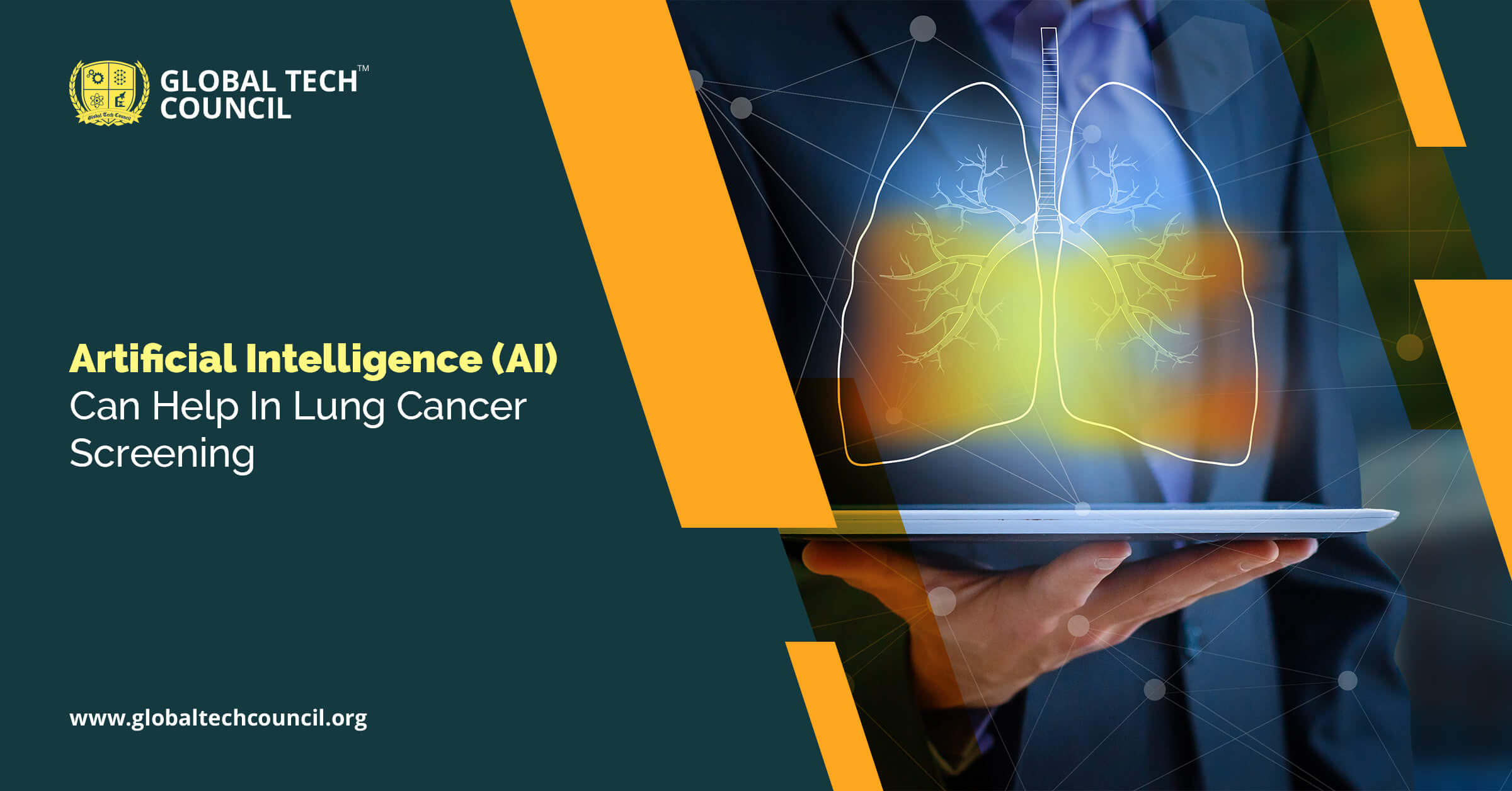
As per the World Health Organization, lung cancer is the most significant cause of death from cancer globally, with an expected 2 million fatalities in the past year. People at significant risk of lung malignancy, such as long-term smokers, are screened with a reduced lung CT scan. This has been found to considerably reduce lung cancer deaths, particularly by assisting in the early detection of tumors when they are more treatable.
However, the pulmonary nodules on CT scans are commonly associated with lung cancer. The majority of lumps are harmless and do not warrant further investigation. It is consequently essential to recognize between benign and deadly nodules to detect malignancies early. So, in this article, we will be talking about a revolutionary technology emerging in the name of “AI for Lung cancer.” Let’s get right into it.
What will you Learn From this?
- How can AI be Useful in detecting Lung Cancer?
- How Can Artificial Intelligence (AI) Help In Lung Cancer Screening?
- Supersedes Manpower
- Better Observation
- Implementation of Deep Learning
- Easy to Use
- Accessing Information to Optimize AI
- Conclusion
How can AI be Useful in detecting Lung Cancer?
Artificial intelligence technologies such as machine learning and deep learning provide the potential to analyze large amounts of data related to lung diseases efficiently. The automatic diagnosis allows for better pulmonary nodule identification and earlier diagnosis of lung cancers. However, the implementation of radiological imaging data is essential for the medical and universal use of computer-based automation investigations, allowing for the interpretation of more scans. In this article, we will know more about how AI can help in lung cancer screening.
How Can Artificial Intelligence (AI) Help In Lung Cancer Screening?
Approximately 70% of the total lung cancers are discovered in their final phases when they are more challenging to cure, which helps to clarify why the five-year survival rate is dropping. The first signs of lung cancer are usually minor complaints like a continuous cough or weariness, which are quick to overlook as unimportant. Oncologist Mariam Jamal-Hanjani of University College London’s Cancer Institute said, “People disregard a cough.” “Many individuals come to my center with advanced infection,” she says, but successful medication at that point becomes very tough, and that only leads to death.
– Supersedes Manpower:
The amount of radiologists who evaluate lung tests or scans has not expanded fast enough to meet expectations. According to some radiologists, they had to handle too many CT images for tons of people. Overworked radiologists may make errors as a result of their heavy workload.
– Better Observation:
Because of the limitations of human sight, radiologists are prone to overlooking small cancerous tumors. For instance, up to 35percent of lung nodules are ignored during the initial examination. AI technology can help both cases by taking part in the load off of overworked professionals and finding lung spots that aren’t evident to the human eye.
– Implementation of Deep Learning:
Knowing the differences between deep learning and machine learning — terminologies that are sometimes used indiscriminately with artificial intelligence but are fundamentally distinct approaches to using computers to generate predictions — is crucial to using AI in radiology. AI is among the most talked-about topics at RSNA, with displays and seminars dedicated to it. This tendency was confirmed in a 2018 review of peer-reviewed research. The researchers uncovered around 300 papers on the application of deep learning in diagnostic image processing, the majority of which were written within the preceding year.
Deep learning is a technique that is used in more modern AI systems. Deep-learning algorithms determine what a tumor seems to be from real-world samples rather than seeking tumor traits provided beforehand by a coder. Researchers feed the computers a massive data set that includes hundreds of CT scans of individuals’ lungs, a few with cancer cells and some not. As a result, the systems can see what a lung cancer lump appears like for themselves.
The more practice images the technologies see, the better they can tell the difference between lung tumors and harmless splotches. They do it with greater precision than previous non-AI platforms.
– Easy to Use:
The benefit of gradually implementing AI technology for medical purposes is that radiologists would not drastically alter their workflow. According to Andrew Berlin, an engineer of the Draper Laboratory in Cambridge, deep-learning technologies can be integrated into preexisting computer-aided diagnostics technologies.
Accessing Information to Optimize AI
Since these and much other research have proved artificial intelligence’s significant potential to enhance lung cancer diagnosis, the science field is looking towards the future to determine the new technologies next step. Because of the characteristics of AI, holders of massive datasets have been compelled to express their knowledge to the people to spur further development and produce more powerful versions.
Van Ginneken and his coworkers planned a similar endeavor in the springtime of 2016 when they launched the Lung Nodule Analyses initiative. The presenters asked the broader Ai developers to create new AI programs either in a nodule identification or a false alarm elimination track using lung CT images from the Lung Image Information Collaboration.
Conclusion
Bringing artificial intelligence to medicine has started opening a slew of new possibilities for improving lung cancer identification, treatment, and prognosis. With the growing use of AI certification models in different lung cancer sections, understanding the black box feature of AI systems is becoming extremely relevant. So that surgeons can benefit from AI systems that have already been successfully trained. For such reasons today, our world needs more people with artificial intelligence certification. If you are searching for a platform that offers comprehensive AI learning and training courses, you should check out the AI certification courses provided by Global Tech Council.